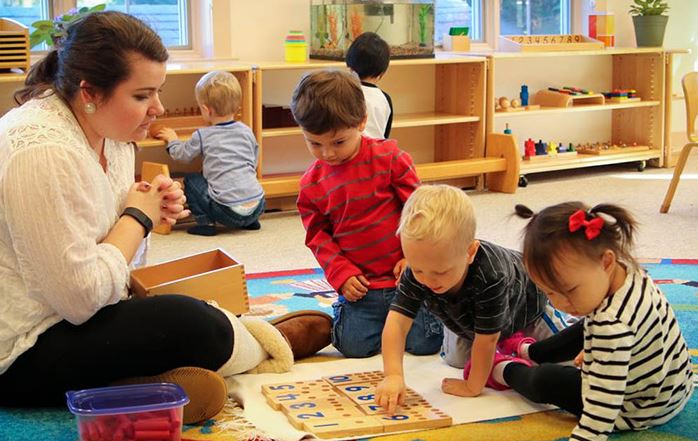Montessori education is not just about academic development; it's about nurturing the whole child. Central to this philosophy is instilling a deep sense of environmental awareness and sustainable practices from a young age. In this article, we will explore how Montessori education promotes environmental consciousness and showcases eco-friendly Montessori products that align with these principles. At Montessori Australia, you can find resources that support this eco-conscious approach to education.
1. The Montessori Philosophy and Sustainability

Montessori's philosophy is rooted in respect for the child, the environment, and the interconnectedness of all life on Earth. This philosophy extends to teaching children to respect and care for their environment, making sustainability an inherent part of Montessori education.
2. The Prepared Environment

The Montessori classroom is often referred to as a "prepared environment." This environment is thoughtfully designed to be beautiful, orderly, and, crucially, sustainable. Materials are made from natural, eco-friendly resources, and care is taken to reduce waste and conserve resources.
3. Practical Life Activities

Practical life activities are fundamental to Montessori education. These activities include caring for plants, animals, and the environment. Children learn to compost, recycle, and conserve resources as part of their daily responsibilities.
4. Botany and Gardening Materials

Montessori classrooms often include botany and gardening materials that introduce children to the natural world. These activities foster an appreciation for nature and teach practical skills for growing and caring for plants.
5. Zoology Materials

The study of animals and their habitats is another integral part of the Montessori curriculum. Children learn about different animal species and their unique roles in ecosystems, instilling a sense of responsibility for the natural world.
6. Geography and Environmental Studies

Montessori geography materials introduce children to the world's continents, countries, and cultures. This global perspective fosters an understanding of the interconnectedness of all life and the importance of environmental preservation.
7. The Three R's: Reduce, Reuse, Recycle

The principles of reducing waste, reusing materials, and recycling are central to Montessori education. Children learn these practices through hands-on activities, such as repurposing materials for art projects and recycling paper.
8. Outdoor Exploration

Outdoor education is a crucial component of Montessori. Children spend ample time in natural settings, developing a deep connection to the environment. This firsthand experience fosters an appreciation for the natural world and the importance of its preservation.
9. Eco-Friendly Montessori Products

The commitment to sustainability extends to the selection of Montessori products and materials. Eco-friendly Montessori products are designed with the environment in mind, using materials that are renewable, biodegradable, or sustainably sourced.
10. Learning Through Sustainable Play

Eco-friendly Montessori products include sustainable toys and materials that are safe for children and the environment. These products often feature natural, non-toxic materials that encourage imaginative play and creative exploration.
11. Waste Reduction and Repurposing

Montessori products are designed to be durable and long-lasting. They are often made with the idea of reducing waste and repurposing materials, aligning with the Montessori principles of sustainability.
12. Outdoor Learning Materials

Outdoor learning materials encourage children to explore the natural world. These materials include tools for observing plants and animals, as well as resources for outdoor activities that foster environmental awareness.
13. Mindful Selection of Materials

Montessori educators and parents are encouraged to make mindful choices when selecting materials for the classroom and home. By choosing eco-friendly, sustainable options, they model environmentally responsible behavior for children.
14. Composting and Gardening Kits

Eco-friendly Montessori products often include composting and gardening kits. These kits teach children about the importance of organic waste recycling and sustainable food production.
Conclusion
The Montessori approach to education is a powerful vehicle for teaching children to care for the environment. Through hands-on activities, experiential learning, and the use of eco-friendly Montessori products, children develop a deep connection to the natural world and a profound sense of responsibility for its preservation. At Montessori Australia, you can explore a wealth of resources that support this eco-conscious approach to education, ensuring that children grow up with a strong commitment to sustainability and environmental stewardship. Montessori doesn't just teach children; it empowers them to become conscientious, environmentally responsible individuals who will actively contribute to a more sustainable future.

